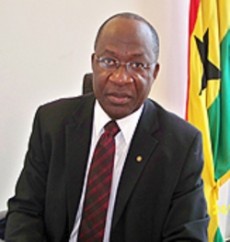Former Chief Executive Officer (CEO) of the National Identification Authority (NIA) Dr. William Ahadzi has advised the management of the Authority to tread cautiously with the planned roll out of the National ID Card.
His advise comes after hundreds of officers who gathered at selected centres to get their National ID Card also known as Ghana Card were left stranded and disappointed after officers of the NIA failed to turn up for the registration exercise.
The exercise was scheduled to start at 7:00am at some key state agencies and institutions like Jubilee House, Parliament, Judicial Service and the various security bodies.
Officers who had massed up had to disperse and return to their base as officials of NIA failed to show up for the much touted project to take off.
No official explanation has been given for the failure to kick start the project today but some NIA officials cited technical reasons for the delay—a position Dr. Ahadzi also professed.
“I think it is a last minute hitch and my suspicion is that it may be a technical hitch,” the former NIA CEO stated on Starr FM on Monday , May 28, 2018.
He continued: “If you are doing instant card issuance, you need to have your systems communicating live, in real time so that you don’t have people registering twice. So I think it is a technical hitch.”
The NIA must therefore proceed “cautiously,” he admonished.
The government of Ghana is contributing $531 million of the total $1.2 billion cost, while Identity Management System (IMS), which is partnering the NIA under a public/private partnership (PPP) agreement, will provide $678 million for the exercise.
The issuance of a National Identification ID card is among the few key projects the government promised to execute to formalise the country’s economy.
General News of Tuesday, 29 May 2018
Source: ghanacrusader.com
Former NIA boss advises over the roll out of National ID cards
 Dr. William Ahadzi, Former Chief Executive Officer (CEO) - National Identification Authority (NIA)
Dr. William Ahadzi, Former Chief Executive Officer (CEO) - National Identification Authority (NIA)
















